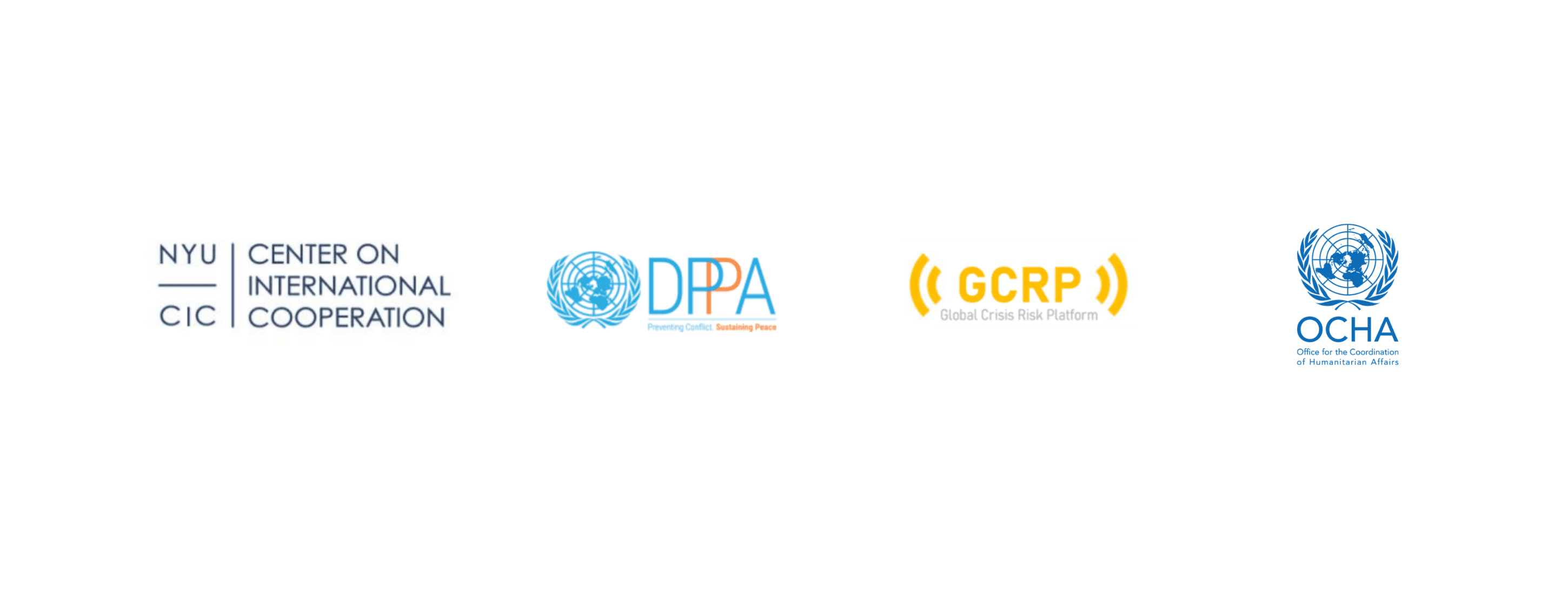Monitoring Compound Risk in the COVID-19 Era: Advances and Future Directions for Tracking Compound Risk
There is rapidly growing interest in identifying, monitoring, and anticipating multiple interacting risks, as epitomized by the COVID-19 pandemic. Institutional bodies are seeking to shift to a policy response that is more forward-looking and risk-based, rather than reactive and needs-based, and are working to develop toolkits for measuring compound risk. This webinar examined the state of the art in compound risk monitoring, showcasing frontier research and policy work on multi-dimensional risk tracking.

Thursday, November 19, 2020
10:00 AM EST
Watch the webinar recording below:
Details
There is rapidly growing interest in identifying, monitoring, and anticipating multiple interacting risks, as epitomized by the COVID-19 pandemic. Institutional bodies are seeking to shift to a policy response that is more forward-looking and risk-based, rather than reactive and needs-based, and are working to develop toolkits for measuring compound risk.
The event was part of a wider webinar series on Monitoring Global Compound Risk in the COVID-19 Era, run jointly by the World Bank’s Global Crisis Risk Platform (GCRP), the United Nations Office for the Coordination of Humanitarian Affairs (UNOCHA), the United Nations Peacebuilding Support Office (PBSO) and the Centre for Disaster Protection (CDP).
The webinar explored the following questions:
- What is compound risk and how can it be monitored?
- What is the state-of-the-art related to tracking compound risk?
- How can the interaction of different types of risk be quantified? What are the main areas of uncertainty?
- What insights and lessons learned can be gathered from earlier attempts at developing compound risk early warning systems?
- Looking forward, what should the priorities be to improve monitoring of compound risk globally?
Speakers:
- Bianca Adam, Team Lead for Compound Risk Analytics and Crisis Preparedness, Global Crisis Risk Platform, World Bank
- Dirk-Jan Omtzigt, Chief Economist & Head, Humanitarian Financing Strategy and Analysis Unit, UNOCHA
- Havard Hegre, Dag Hammarskjöld Professor of Peace and Conflict Research at Uppsala University and Research Professor at the Peace Research Institute Oslo (PRIO)
- Jakob Zscheischler, SNF Ambizione Fellow at Climate and Environmental Physics, Physics Institute, University of Bern, Switzerland
- Susan Cutter, Carolina Distinguished Professor and Director of the Hazards & Vulnerability Research Institute, University of South Carolina
Chair:
- Paige Arthur, Deputy Director, Center on International Cooperation
Stay Connected
Subscribe to our newsletter and receive regular updates on our latest events, analysis, and resources.
"*" indicates required fields